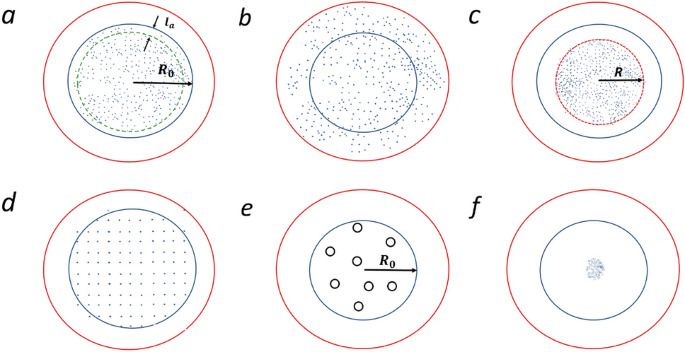Hence, while the fast particles are abundant in molecular systems, they are practically lacking in active matter. These fast particle can overcome the attraction forces of the molecular surrounding and give rise to the gaseous phase; the lack of fast particles in active matter results in the lack of the gas, coexisting with the liquid phase. If the particle density is still larger and the repulsive forces are strong, the active matter falls into a solid phase, Fig. 1 d, where the particles mobility is suppressed.
In some range of parameters a novel swirlonic phase is formed, Fig. 1e. It is comprised of swirlons —“super-particles” with many astonishing properties which we address below. Individual active particles in swirlons perform a swirling motion around their common center. As we demonstrate in what follows, the swirlons are formed when local fluctuating force exceeds the critical force, which characterizes the ability of an active particle to move against an applied load.
Finally, for large density and very strong attractive forces a collapsed state is observed, Fig. 1 f. In the collapsed state active particle also move around the common center, however the character of the motion is rather irregular. In the present study we will focus on the gaseous, liquid and especially on the swirlonic phase.
